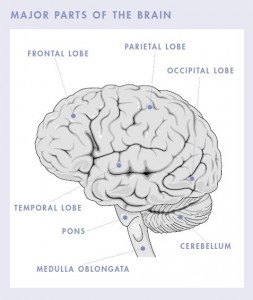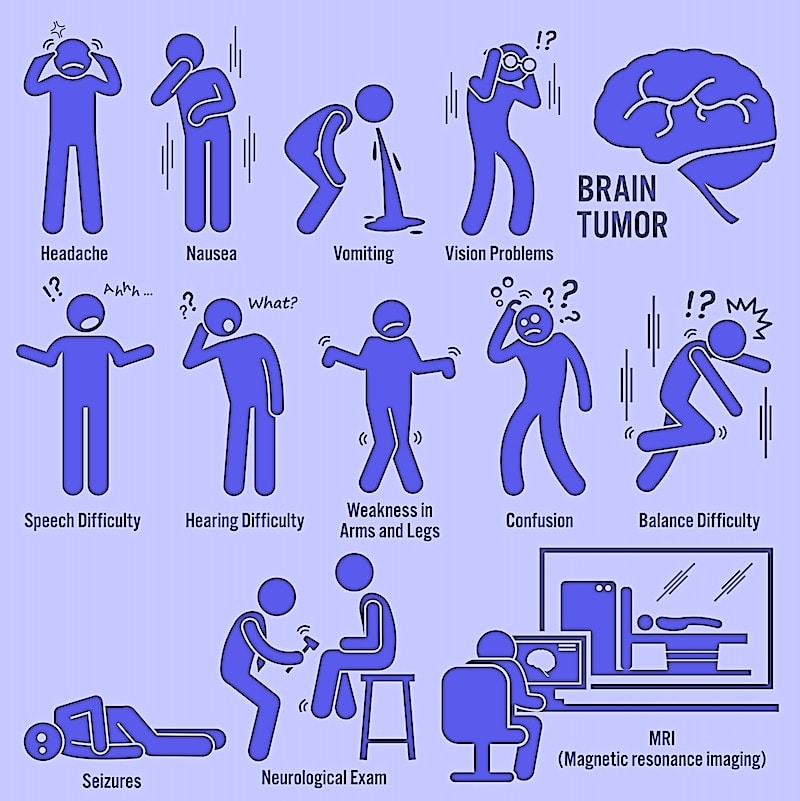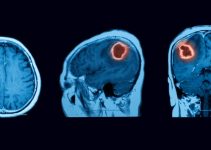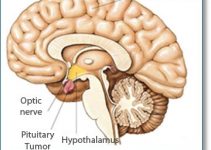Tumors that originate in the brain are defined as a collection of functionally and morphologically abnormal cells that are growing at an uncontrollable rate.
However, many everyday common illnesses have similar symptoms as the signs and symptoms of brain tumors. The question then is how do you know you have a brain tumor?
Self-diagnosis is never a wise idea and if you're concerned that you have symptoms relating to a brain tumor then you should always consult your physician.
Table of Contents
There Are Two Types of Brain Tumors
Primary and secondary brain tumors. Primary tumors arise from either the brain coverings (meninges), cells of the brain, glands or the nerves. The exact causes have not been determined.
We will describe some of the more common brain tumor symptoms but again it is important to remember that just because you are dizzy or have a headache it doesn't necessarily mean you have a brain tumor.
There are certain risk factors, such as age, certain predisposing conditions such as neurofibromatosis, exposure to radiation or immunosuppressant conditions (HIV/AIDS).
The abnormal growth destroys normal brain cells by either applying pressure on various brain parts or via inflammation.
Secondary brain tumors are those that originate in other body parts (not the brain) but later spread to the brain.
Meningiomas and gliomas constitute the most common primary brain tumors in adults. The tumors most common in children are medulloblastoma or germ cell tumors.
Brain Tumor Symptoms
The presenting clinical features of brain tumors depend on certain factors such as the size of the tumor and the location in which the tumor arises.
There are certain tumors that give rise to no symptoms at all. So how do you know you have a brain tumor? We a look at possible signs below.

What Do Brain Tumor Headaches Feel Like?
Those who are afflicted with tumors of the brain most commonly suffer from a few characteristic clinical symptoms and headache is one of them.
Over fifty percent of people with brain tumors experience headaches along with other symptoms.
Headaches are caused by the pressure exerted by the tumor mass on either the nerves in the brain or on the blood vessels, which are sensitive to pain.
Such headaches are persistent in nature and are marked by continuous pain, which is greater at night and upon waking up in the morning. As the day goes by, the headache subsides.
This non-migraine type of headache may or may not be accompanied by vomiting. Depending on the tumor location, you may experience throbbing too.
The pain is worse upon coughing and physical activity such as shouting or while bending. Has your headache stopped responding to routine headache medications?
If so, you must visit a doctor and describe the nature of pain (For example: if it is stabbing, dull or sharp in nature), the intensity and duration of the headache and if it is accompanied by fever, nausea, or stiff neck.
Seizures:
A seizure is defined as a sudden attack or convulsion brought about by unusual electrical activity within the brain.
Such attacks do not last for an extended time and they usually involve involuntary body movements.
Seizures are also associated with a change in the consciousness coupled with sensory distortions.
The type of seizure you might experience is related to the tumor location.

Incidence:
Approximately sixty percent of patients suffering from brain tumors experience at least one episode of seizure.
A few of the features common to such patients are as follows: seizures are triggered suddenly.
When this happens, you’ll lose consciousness plus body tone and this will be followed by twitching plus muscle contraction and relaxation.

During the seizure, there is a loss of control over all body functions. You may experience a pause in breathing for up to thirty seconds or bite your tongue.
Post this incident, you might feel pain in the head, feeling of disorientation, sleepiness, and soreness in the muscles. You may experience a brief spell of numbness and weakness.
Drowsiness
This symptom is noted in the later stages of a brain tumor. As the mass of tumor cells grow in size, the pressure within the head elevates and you might sleep for longer than before.
If left untreated, it will become difficult for you to stay awake, ultimately ending in a coma.
Loss of memory
A highly common symptom noticed in individuals with a brain tumor is the loss of memory.
Such changes are caused by either the tumor or due to the after-effects of chemotherapy, surgical intervention or radiation therapy.
Short term memory lapses are more noticeable than memory loss of prolonged duration.
Changes in vision and hearing
Brain tumors lead to disturbances in normal vision.
Some of the difficulties include noticing flashing lights, blurred vision, double vision, floating shapes and declining eyesight that switches between good and bad on a recurrent basis.
Eyelid drooping and differently sized pupils are other features. Hearing loss from one side and experiencing a constant ringing sensation is experienced by many.
Have a look at the image below for a clear idea of what blurry vision appears like.

Depression
Symptoms that hint towards depression have been commonly observed among brain tumor patients and these tend to escalate in intensity and frequency over time.
One-fourth of all brain tumor afflicted patients suffer from phases of major depression. Such symptoms are also seen in those who underwent surgery for brain tumor removal.
Persistent episodes of sadness that interfere with all aspects of everyday life are noticed in such patients.
Other symptoms are a loss of enthusiasm and interest in their favorite activities, insomnia, reduced energy levels, and suicidal thoughts.
Changes in behavior
If you find it difficult to plan or handle more than one task as you did earlier with ease, or if you experience confusing thoughts or get distracted easily, you should seek a medical opinion.
If you notice irritability, signs of anxiety and depression, difficulty retaining information and maintaining fluent speech or writing, take it seriously.
Other brain tumor symptoms include clumsiness, obesity, and extreme sensitivity towards heat or cold, trouble comprehending spoken or written words, hand tremors, and altered taste perception.
Timely detection can work in your favor and can hasten your progress towards a tumor-free life.
Resources:




